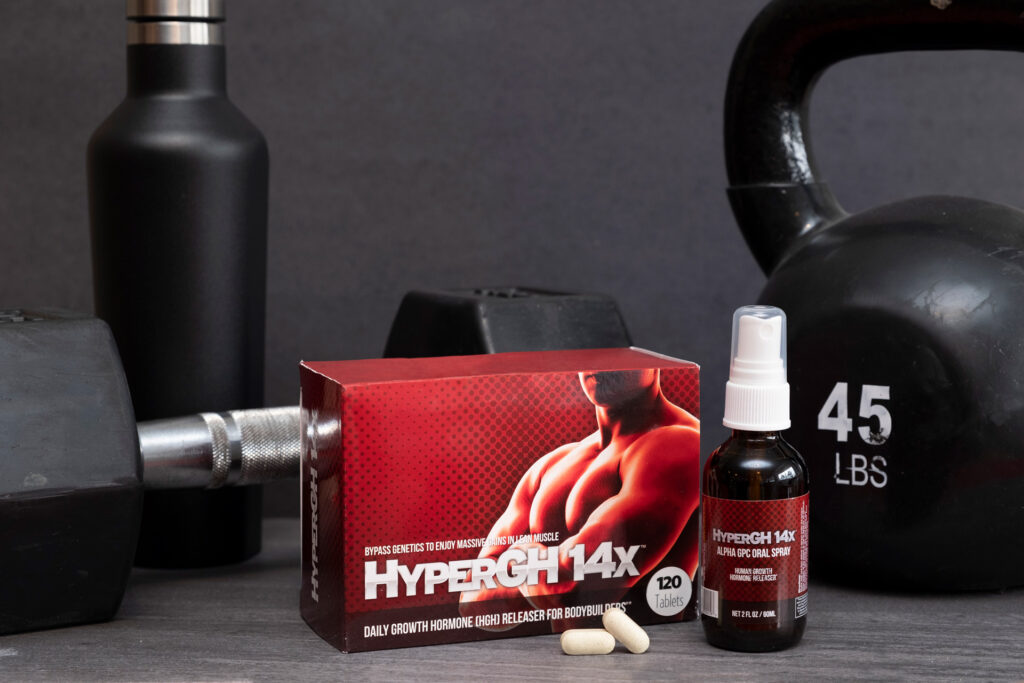Human Growth Hormone (HGH) plays a crucial role in our overall health, vitality, and aging process. As we age, our natural production of this essential hormone declines significantly, leading many to seek ways to boost their levels naturally. Understanding how to optimize your body’s natural HGH production can help improve muscle mass, reduce body fat, enhance energy levels, and promote overall well-being.
What is Human Growth Hormone?
Human Growth Hormone is a peptide hormone produced by the anterior pituitary gland. It’s essential for growth during childhood and adolescence, but its importance doesn’t diminish in adulthood. HGH regulates metabolism, promotes protein synthesis, stimulates the growth of bones and cartilage, and plays a vital role in maintaining healthy body composition.
Research published in the Journal of Clinical Investigation demonstrates that HGH levels peak during adolescence and decline by approximately 14% per decade after age 30 (Iranmanesh et al., 1991). This natural decline contributes to many age-related changes, including decreased muscle mass, increased body fat, reduced bone density, and diminished energy levels.
The Science Behind Natural HGH Production
The body’s HGH production follows a circadian rhythm, with the highest levels occurring during deep sleep stages. The hypothalamus releases Growth Hormone-Releasing Hormone (GHRH), which signals the pituitary gland to produce and release HGH. Conversely, somatostatin inhibits HGH release, creating a delicate balance that regulates hormone levels throughout the day.
Several factors influence natural HGH production, including sleep quality, exercise intensity, nutrition, stress levels, and body composition. Understanding these factors allows individuals to make lifestyle modifications that can naturally enhance their HGH levels without resorting to synthetic alternatives.
Natural Methods to Boost HGH Production
Optimize Sleep Quality
Sleep is perhaps the most critical factor in natural HGH production. Studies show that up to 75% of daily HGH release occurs during deep sleep stages, particularly during the first few hours of sleep (Van Cauter & Copinschi, 2000). To maximize HGH production through sleep:
- Maintain a consistent sleep schedule, aiming for 7-9 hours nightly
- Create a dark, cool sleeping environment
- Avoid screens and blue light exposure before bedtime
- Establish a relaxing bedtime routine
- Avoid caffeine and large meals close to bedtime
High-Intensity Exercise
Regular exercise, particularly high-intensity interval training (HIIT) and resistance training, significantly stimulates HGH release. Research published in Sports Medicine shows that intense exercise can increase HGH levels by up to 10-fold immediately post-workout (Godfrey et al., 2003).
Effective exercise strategies for HGH optimization include:
- High-intensity interval training 2-3 times per week
- Compound resistance exercises like squats, deadlifts, and bench presses
- Circuit training that combines strength and cardiovascular elements
- Sprint training and plyometric exercises
Intermittent Fasting
Intermittent fasting has gained attention for its ability to naturally boost HGH levels. Studies indicate that fasting for 24 hours can increase HGH production by up to 2000% in men and 1300% in women (Hartman et al., 1992). The mechanism involves reducing insulin levels, which inversely correlates with HGH production.
Popular intermittent fasting approaches include:
- 16:8 method (16-hour fast, 8-hour eating window)
- 24-hour fasts 1-2 times per week
- 5:2 diet (eating normally 5 days, restricting calories 2 days)
Nutrition for HGH Support
Certain nutrients and dietary strategies can support natural HGH production:
Amino Acids: Arginine, ornithine, and glycine have been shown to stimulate HGH release. Foods rich in these amino acids include lean meats, fish, nuts, and legumes.
Protein Intake: Adequate protein consumption supports HGH production by providing essential amino acids. Research suggests consuming 1.2-1.6 grams of protein per kilogram of body weight daily.
Healthy Fats: Omega-3 fatty acids and monounsaturated fats support hormone production. Include sources like fish, avocados, nuts, and olive oil.
Minimize Sugar: High sugar intake suppresses HGH production by elevating insulin levels. Limit processed foods and refined sugars.
Stress Management
Chronic stress elevates cortisol levels, which can suppress HGH production. Effective stress management techniques include:
- Regular meditation or mindfulness practices
- Deep breathing exercises
- Yoga or tai chi
- Adequate rest and recovery time
- Social support and connection
Natural Supplements for HGH Support
Several natural supplements may support HGH production when combined with proper lifestyle practices:
Melatonin: This sleep hormone not only improves sleep quality but may also directly stimulate HGH release. Studies show melatonin supplementation can increase HGH levels by up to 157% (Forsling et al., 1999).
GABA (Gamma-Aminobutyric Acid): This neurotransmitter may increase HGH levels at rest and during exercise. Research indicates GABA supplementation can boost HGH by up to 400% (Powers et al., 2008).
Alpha-GPC: This compound may enhance HGH response to exercise and support cognitive function.
L-Arginine: This amino acid can stimulate HGH release, particularly when taken before exercise or sleep.
Benefits of Optimizing Natural HGH
Maintaining healthy HGH levels through natural methods offers numerous benefits:
- Improved Body Composition: Enhanced muscle mass and reduced body fat
- Better Sleep Quality: More restorative sleep and improved recovery
- Increased Energy: Enhanced vitality and reduced fatigue
- Stronger Bones: Improved bone density and reduced fracture risk
- Enhanced Recovery: Faster healing from exercise and injury
- Better Skin Health: Improved collagen production and skin elasticity
- Cognitive Benefits: Enhanced memory and mental clarity
Safety Considerations
While natural methods for boosting HGH are generally safe, it’s important to approach any hormone optimization program thoughtfully. Consult with healthcare professionals before making significant changes to your diet, exercise routine, or supplement regimen, especially if you have underlying health conditions.
Avoid synthetic HGH injections unless prescribed by a qualified physician for legitimate medical conditions. Synthetic HGH carries significant risks and side effects, including joint pain, fluid retention, increased diabetes risk, and potential heart problems.

HyperGH 14x: A Natural HGH Support Supplement
For those seeking additional support in their natural HGH optimization journey, HyperGH 14x offers a comprehensive approach to hormone support. This natural supplement is designed to work with your body’s existing HGH production mechanisms rather than replacing them with synthetic alternatives.
HyperGH 14x contains a carefully selected blend of amino acids, herbs, and nutrients that have been researched for their potential to support natural HGH production. The formula includes ingredients like L-Arginine, L-Lysine, L-Tyrosine, Tribulus Terrestris, and Astragalus Root Extract, among others. These components work synergistically to potentially enhance your body’s natural ability to produce and release growth hormone, particularly when combined with proper exercise, nutrition, and sleep habits. The supplement is formulated to be taken twice daily, designed to support both daytime energy and nighttime recovery when natural HGH production typically peaks.
References
- Iranmanesh, A., Lizarralde, G., & Veldhuis, J. D. (1991). Age and relative adiposity are specific negative determinants of the frequency and amplitude of growth hormone (GH) secretory bursts and the half-life of endogenous GH in healthy men. Journal of Clinical Endocrinology & Metabolism, 73(5), 1081-1088.
- Van Cauter, E., & Copinschi, G. (2000). Interrelationships between growth hormone and sleep. Growth Hormone & IGF Research, 10, S57-S62.
- Godfrey, R. J., Madgwick, Z., & Whyte, G. P. (2003). The exercise-induced growth hormone response in athletes. Sports Medicine, 33(8), 599-613.
- Hartman, M. L., Veldhuis, J. D., Johnson, M. L., Lee, M. M., Alberti, K. G., Samojlik, E., & Thorner, M. O. (1992). Augmented growth hormone (GH) secretory burst frequency and amplitude mediate enhanced GH secretion during a two-day fast in normal men. Journal of Clinical Endocrinology & Metabolism, 74(4), 757-765.
- Forsling, M. L., Wheeler, M. J., & Williams, A. J. (1999). The effect of melatonin administration on pituitary hormone secretion in man. Clinical Endocrinology, 51(5), 637-642.
- Powers, M. E., Yarrow, J. F., McCoy, S. C., & Borst, S. E. (2008). Growth hormone isoform responses to GABA ingestion at rest and after exercise. Medicine & Science in Sports & Exercise, 40(1), 104-110




